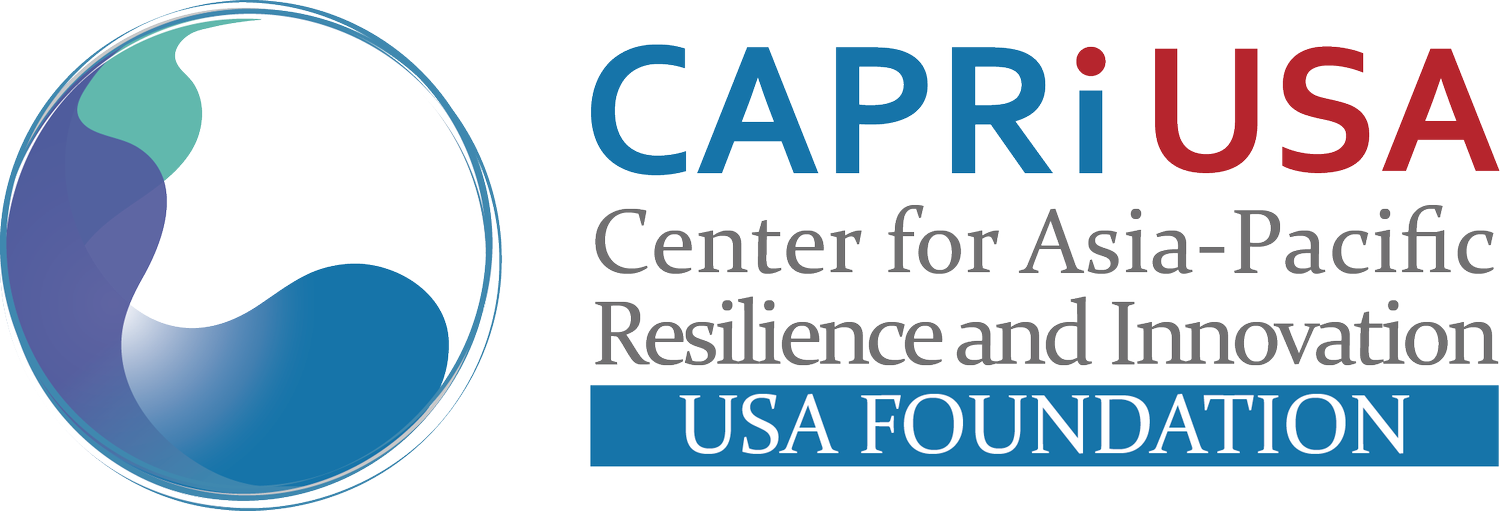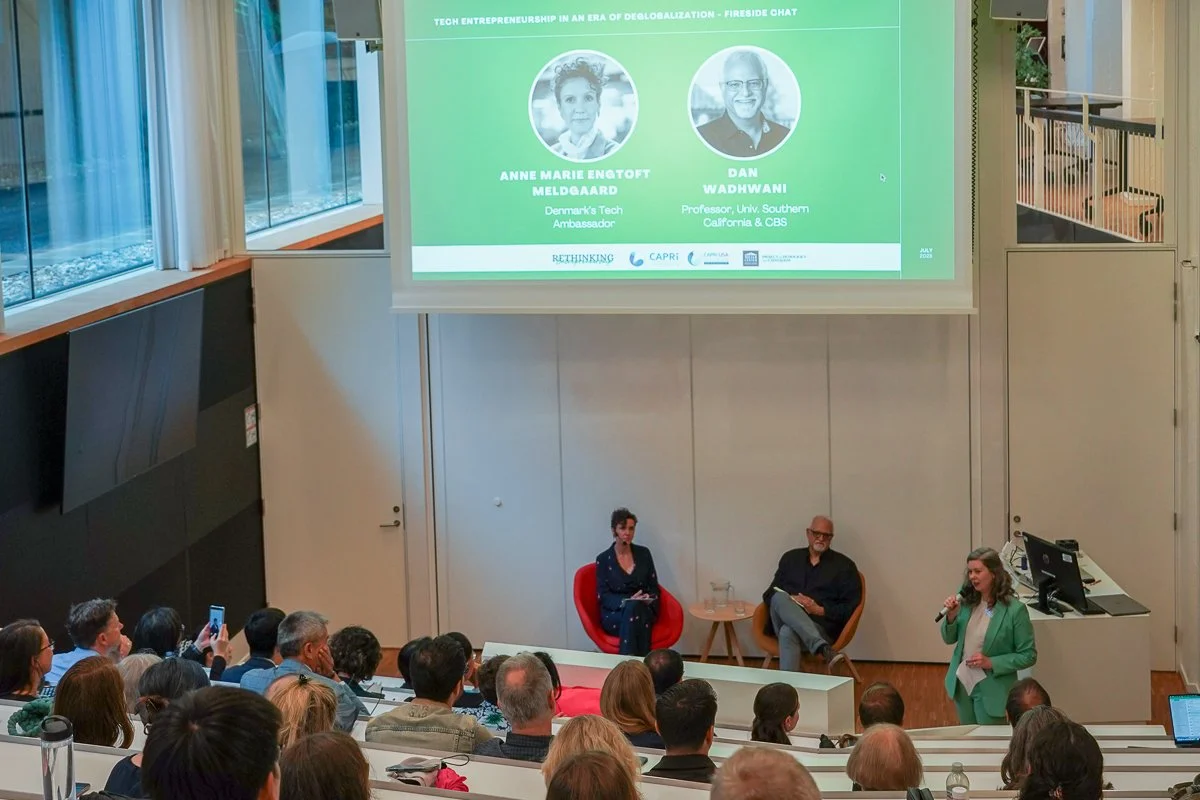Opening Keynote by Denmark’s Tech Ambassador at the Reimagining Entrepreneurship Conference in Copenhagen
Speaker: Anne Marie Engtoft Meldgaard, Tech Ambassador, Ministry of Foreign Affairs Denmark; Former Lead, Fourth Industrial Revolution for Sustainable Development, World Economic Forum (2017–2020)
Moderator: Dan Wadhwani, Jill Brooks-Garnett Teaching Chair in Entrepreneurship, University of Southern California Marshall School of Business
Denmark’s Tech Ambassador Anne Marie Engtoft Meldgaard opened the Copenhagen conference with a sweeping reflection on how geopolitics, innovation, and governance intersect in an era of fragmentation and great-power rivalry. In a wide-ranging conversation with Prof. Dan Wadhwani, she described how digital policy has evolved in Europe and globally, often led by democratic societies but increasingly challenged by geopolitical tensions.
She noted that while the world is not deglobalizing, it is fragmenting along ideological, political, and technological lines. Today’s massive data centers, for example, are often built through global cooperation involving technology, rare earth minerals, and treaties, yet they are governed by diverging standards. This fragmentation is changing how countries collaborate on innovation, making governance systems more complex.
She further highlighted how Europe has tried to lead by example, even when imperfect. The GDPR, for instance, reshaped global conversations about privacy, while initiatives like the EU Chips Act 2.0 aim to secure critical technologies without closing off innovation. She argued that democratic regulation, when done well, is not a constraint but a competitive asset, especially when balanced with strategic investment and public–private collaboration, as seen in Denmark’s own tech diplomacy. Europe, she explained, must take seriously the tradeoffs between open innovation and national security, as well as between global competitiveness and domestic resilience.
Addressing broader global disparities, she explained that although innovation hubs are emerging in countries like Kenya and Ghana, the global digital divide persists; for example, cloud computing services are more expensive in Ghana than in Denmark. She called for the EU to offer more inclusive tech partnerships with the Global South.
Discussing Denmark’s experience with the Tech Ambassador model, she noted how the position has evolved from outreach and listening to negotiation and agenda-setting with large tech platforms. In an age when tech companies can rival nation-states in influence, she argued, governments must equip themselves with diplomatic and institutional tools to engage on equal footing.
Responding to a question from Joseph Wong, she spoke about the critical role of universities in national innovation ecosystems. Higher education institutions, she argued, must serve not just as talent pipelines but also as convenors of public discourse and partners in shaping inclusive industrial strategies.
Ambassador Meldgaard closed with a call for democratic societies to move beyond risk aversion and reclaim leadership in shaping technological systems that are open, secure, inclusive, and resilient, especially in the face of rising authoritarianism, disinformation, and climate pressures.
Date: Wednesday, July 23, 2025
Time: 9:00–10:30 a.m.
Location: The Carlsberg Akademi, Copenhagen

